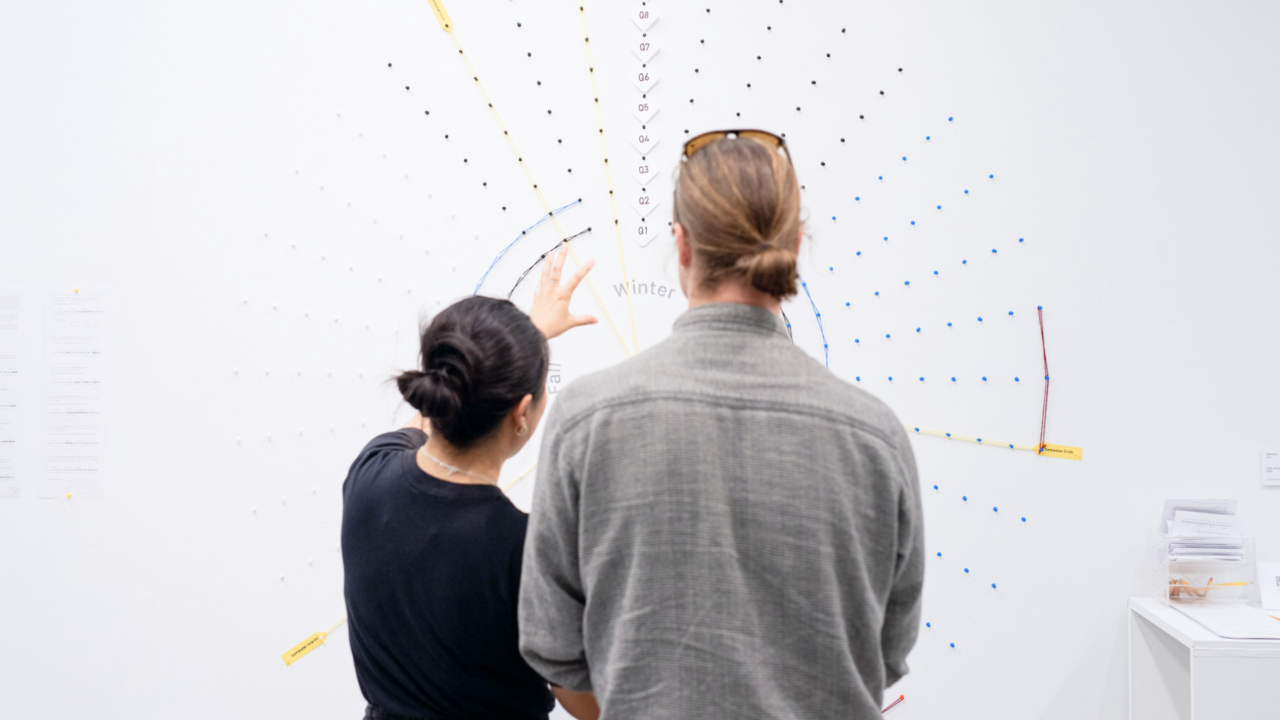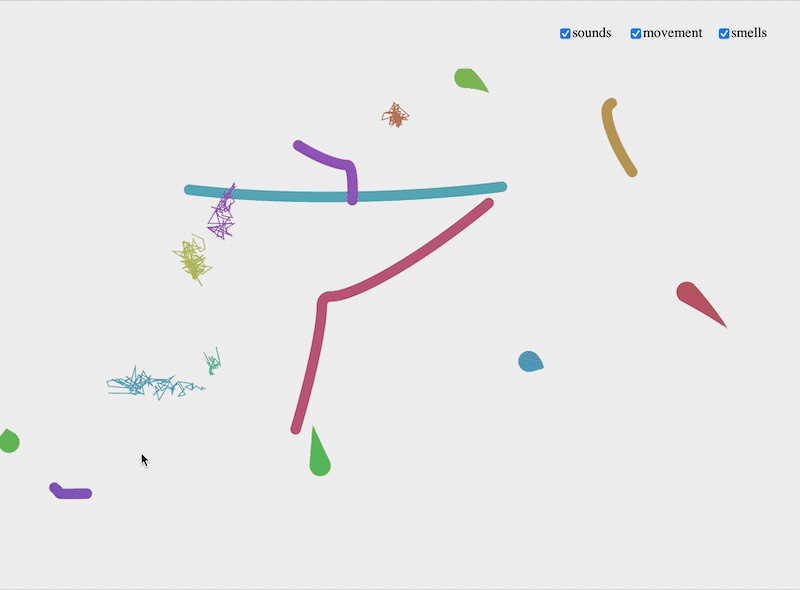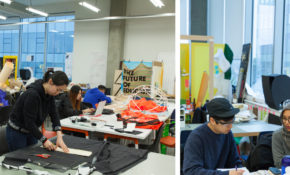Ecological Design Practice

Counter Clockwise: Eden Zinchik's (BDes 2023) project Container of Curiosities; Design-with-all-beings by Danika Oystrek; a student reassembles shoe parts during the Native Shoe Hack.
Situate your design practice in relation to ecological needs.
Lead your design practice from a deep understanding of ecological systems. For BDes students seeking a deeper understanding of sustainable, earth and land-based practices, the Ecological Design Practice minor offers an experimental and forward-thinking space to re-situate design within ecological limits.
What You Will Learn
This minor supports the transformative work of shifting to a worldview that empowers design for reciprocal relationships of care that recognize our deep interdependence with all beings. Situated in the Faculty of Design and Dynamic Media, students in this minor will research design to regenerate the ecosphere. Students will be exposed to earth-centric cosmologies; non-extractive practices; design with nature; narrative practices; strategic design; systems thinking; local scales of circular design and holistic systems mapping.
Designers with this capacity will be crucial for our collective futures, employing strategic design and research in relation to ecological systems. They will be able to discuss and advocate ecological needs and concerns with a wide variety of audiences. Graduates with this expertise might pursue careers oriented to sustainable design, including work in government, policy development, institutions and corporations where ecological sustainability is a core value, and in research positions where path-breaking work is needed.

"We’re looking for ways of helping designers understand that nature is part of us, that we are part of it. This understanding needs to be integral to how we think about designing...This research is about having a conversation about knowing ourselves more humbly as part of the Earth."
Program Structure
Students typically declare a minor in the Spring term of their second year.
Each minor consists of a cluster of second- and third-year courses focusing on a specific theme or practice, with a historical, theoretical, and practical context.
Total credits: 18
Required courses: 9 credits
Elective courses: 9 credits
Electives may be drawn from a range of courses across studio and critical studies designated as *ECOL.





